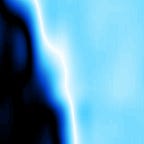Consciousness is inherently linguistic.
Thinking is what consciousness does. While it may be the case that most things rise from the vague and might appear in a form different than words, there is nothing fixed about that. By the time a thought achieves what I would call an indexical status, it is most of time a word or phrase which becomes the subject of an inquiry one has within oneself.
In my efforts, I determine that the index consist of values and I submit any thought to these values. That index I would call a second stage of thought.
When that ethical interaction is complete, chronology leads to a final or third stage when the considered sign (word) is examined from the standpoint of actualization — what I will do or say (or both) as a result of the consideration. I call this the aesthetic phase because I see aesthetic as doing, as action, as the making of such history as we may make.
The need to order or rank modes of perception — images, words, geometric forms — seems to me subsumed in the Peirce maxim that all thinking is in signs. I am not sure what he means, but I am reasonably sure that he would admit words and images and forms are all necessary aspects of consciousness and give to words the due their existence seems to demand.
Words are the basis of language. Consciousness is inherently linguistic. There are non verbal languages but they are not the general rule for ordinary communication.
